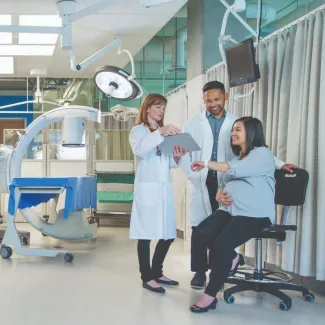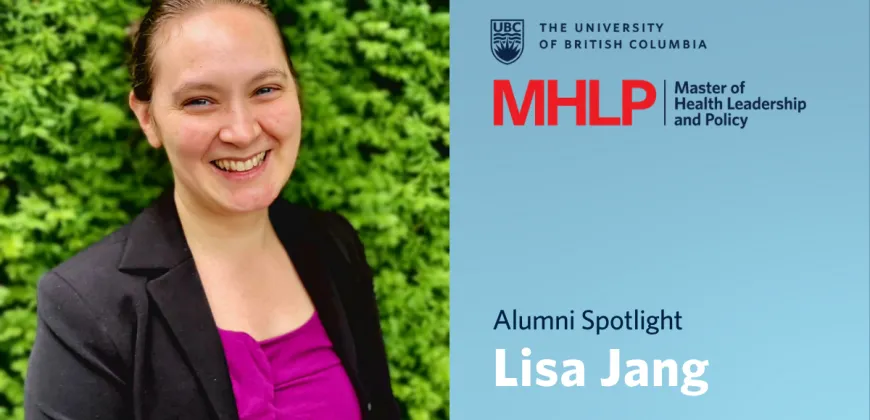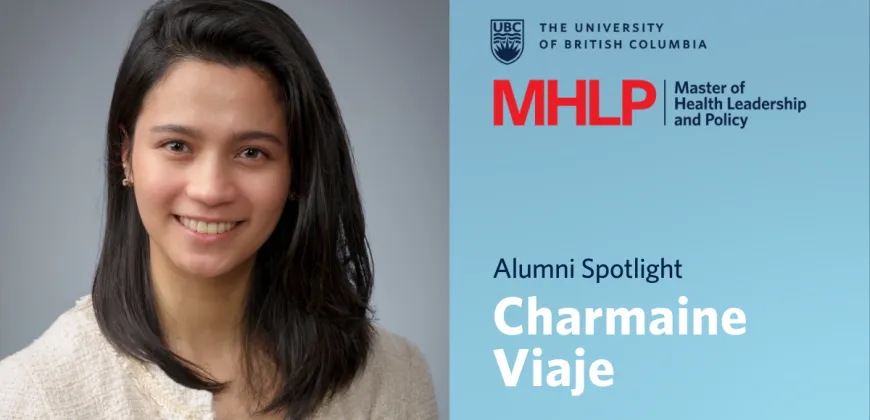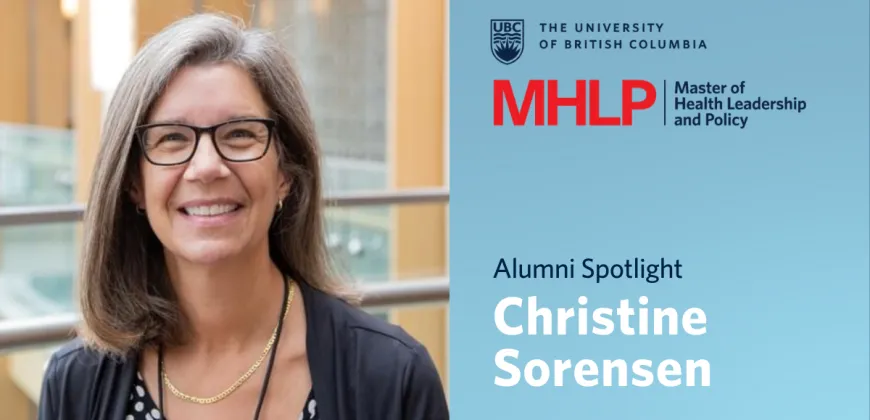Alumni Spotlight: Arlene Singh
An MHLP practicum in virtual health launched Arlene Singh into a new and timely focus for her career – supporting health-care practitioners to use the latest technology to provide patient-centred care.
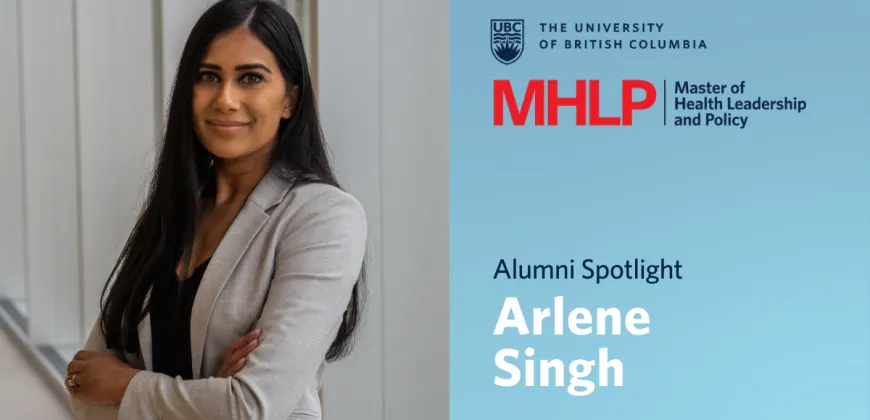
Arlene Singh came into the 12-month Master of Health Leadership and Policy (MHLP) with significant professional experience – eight years at the Fraser Health Authority as a critical care nurse working in emergency, experience working abroad in the Middle East, and teaching experience as an instructor in UBC’s undergraduate nursing, and BCIT’s emergency nursing specialty program. She was intrigued by the MHLP in Clinical Education, seeing it as an opportunity to expand her management knowledge and leadership skills while gaining exposure to best practices in clinical education.
Her practicum in Vancouver Coastal Health’s virtual health department proved to be a career-shifting experience, sparking an interest in an area that she says she “knew very little about before starting the degree.”
Another transformative experience came from organizing a health-care hackathon that brought together health-care students and engineers to develop innovative solutions to health-care challenges.
A job aligned with her new passion
After graduating in December 2019, Arlene began looking for a position where she could contribute to the digital transformation of the health-care sector. She says she found a job posting that was just what she was looking for: a Clinical Planner with the Vancouver Coastal Health Authority’s Virtual Health team.
Arlene was hired to work with Coastal communities within the health authority to identify areas where virtual health could enhance the care provided to patients and support clinicians and providers in using virtual platforms to connect with patients and each other.
“Many of these communities are quite remote, and it can be a significant investment of time and money for patients to travel to a larger centre for appointments, often involving ferry rides and long car trips. Our virtual health strategy is about increasing access to care, which means looking for ways to reduce barriers and make it easier for patients to connect with their health-care providers. In those cases where visits don’t need to be done in person, virtual health can be a way to enhance current practices.”
COVID-19 makes virtual health an imperative
About a week into her new role, the COVID-19 pandemic forced BC’s health-care system into a new reality. Many services were limited or reduced as the health authority took steps to ensure the safety of patients. Due to COVID-related restrictions and social distancing measures, in-person ambulatory and outpatient clinics transitioned to virtual delivery of care.
The move to virtual health shifted into high gear. For Arlene, that meant provisioning Zoom licences, offering training in Zoom and other videoconferencing tools, transitioning programs and services to an online environment, and supporting staff to modify and enhance workflow practices to meet patient needs.
She says that patients and health-care providers have quickly adapted to the new way of doing things. In allied outpatient clinics – such as physiotherapy and occupational health clinics – health-care providers connect virtually with the patient and then oversee exercises and rehabilitation through a Zoom meeting. Diabetes education clinics have developed advanced workflows that see each member of an interdisciplinary team meeting one-on-one with each patient and then coming together virtually as a group to discuss and develop a patient care plan.
Arlene also says the technologies are being used for clinical education, including virtual training in safe practices for donning and removing personal protective equipment. “Staff can run this training through simulation and connect to a wider audience than they would be able to otherwise due to space limitations and distancing measures,” she says. “It means staff can quickly bring people up to speed on how to put on and take off PPE without having to use and discard the equipment, which is sometimes in short supply.”
She says it’s amazing to see what’s happening across the system. “Although some people might have been apprehensive early on about integrating these virtual health technologies, once COVID arrived, the need to maintain that patient connection was even more important. Staff are the seeing the value of virtual and many can foresee themselves using these platforms where appropriate to deliver care post-COVID.”
MHLP provides a strong foundation
In Arlene’s case, the one-year MHLP provided essential training for her new role.
“Many of the business classes were instrumental,” she says. “Our exploration of change management theories and models – from the ADKAR model to Kotter’s eight-step process for leading change – has been very useful. It’s helped me engage with staff and communicate the ‘why’ of what we are doing to support our patients.”
She notes that the skills she acquired in her project management and leadership class have helped her stay organized and able to keep all the “many moving parts” of the numerous virtual health projects and supports functioning successfully. And she credits her clinical education classes for providing strategic insight. “We’re supporting adult learners, so having that theoretical background and knowledge base has been great.”
Although the first two months of the COVID-19 pandemic have been a time of uncertainty and upheaval in health care, Arlene says she and her colleagues are rightfully proud to see how health-care providers and patients have embraced the possibilities of virtual health.
“It’s really rewarding to look back on what our team has accomplished in such a short time and see how staff across the organization have adopted new technologies, and adapted their practices to ensure patients stay connected despite everything that’s going on. Using these tools to maintain contact with patients – and in many cases, make accessing care less of a burden for them – is essential and very meaningful.”
–
Take the steps to join the next cohort of engineering leaders. If you haven’t already, assess your eligibility and sign up for the upcoming information session to learn how to submit a strong application. Learn more about this innovative master’s program:
